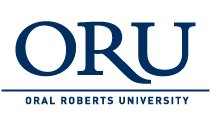 Last week, I posted a statement from Oral Roberts University contradicting David Barton’s claim that he played basketball for ORU during record-setting seasons in the 1970s.
Last week, I posted a statement from Oral Roberts University contradicting David Barton’s claim that he played basketball for ORU during record-setting seasons in the 1970s.
A reader suggested that I contact E. Glenn Smith, head trainer and icon at ORU, for more information on how the record-setting basketball teams of the early 1970s trained. Smith joined ORU as head trainer and director of sports medicine in 1972 and worked with the baseball and basketball teams during his long and distinguished career there. I supplied Smith with the following description of basketball training Barton provided to the Charis Bible School audience. Barton, a 1976 graduate of ORU, said:
I remember when I was playing basketball, the college stuff that we did. We started every day with a five mile run, then we lifted weights, then we had an hour of racquetball, then we had two hours of full-court basketball, then we came back for another run. It wasn’t particularly enjoyable, but in those years, our college team set the NCAA record for two years in a row for most points scored. We averaged 105, 104, 103 points a game, I forget what it was. But you had to run a lot, it wasn’t a lot of fun, but you get the results.
I then asked Smith if this routine sounded “like the type of practices and training Ken Trickey or the coach after him ran.” Smith wrote back immediately and said simply:
Trick [ORU coach Ken Trickey] ran the loosest practices ever! They were nothing but Run and Gun Scrimmages for the entire practice!! Smitty
In a subsequent email, it was obvious Smith did not know who Barton was and he wondered if perhaps Barton attended before Smith joined the school in 1972.
I followed up by asking if Ken Trickey’s replacement, Jerry Hale, ran loose practices or ever required players to play racquetball. Smith replied that Hale was more organized but did not include racquetball as a part of the training routine.
After this exchange, it appears to me that nothing David Barton said about playing basketball at ORU is accurate. First, Barton said he played for the record-setting team. This claim was denied by the athletic department at ORU. Then Barton went into great detail about the training routine which he said led to record-setting results. However, according to the trainer who was there, the practices were not as Barton described.
Barton isn’t the first celebrity to misremember, make up or exaggerate sports prowess.
ESPN basketball analyst Skip Bayless greatly exaggerated his role on his high school basketball team which led to several media stories and a public confrontation from ESPN co-host Jalen Rose. Bayless’ sports career inflation made number 40 on the 50 biggest sports lies put together by the Bleacher Report.
When it was alleged that Republican Colorado Senate candidate Cory Gardner lied about his role on his high school football team, the Washington Post’s Erik Wemple thought it was important enough to check out. It turned out that Gardner played a little football but perhaps not as much as he implied. However, the story didn’t hurt him; he unseated Mark Udall in last year’s Senate race.
Apparently, truthfulness about past sports involvement matters to conservatives when the politician is a liberal as in the case of V.P. Joe Biden’s short-lived football career. Several conservative news outlets accused Biden of lying about playing football at the University of Delaware. He did play but didn’t play in a victory over the Ohio University Bobcats as Biden claimed.
Paul Ryan misremembered his marathon time which brought lots of media attention. He was running for V.P. at the time.
Back in 2001, George O’Leary resigned after 5 days on the job as football coach at Notre Dame because he made up aspects of his football and academic accomplishments. That was number 2 on the Bleacher Report top 50.
So far Christian media have ignored the story.
The significance of these gaffes is that Barton has similar problems when it comes to history and the Constitution. For instance, Barton claims that the Constitution quotes the Bible verbatim. Everybody knows that is not true. Even if one believes that the Bible had some influence on the writers of the document, the Constitution doesn’t do what Barton claims.